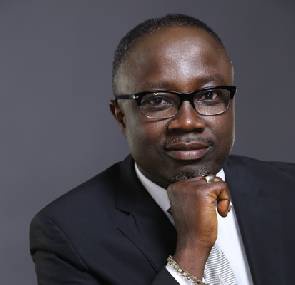A former parliamentary aspirant of the New Patriotic Party (NPP) in the Subin Constituency has urged government to, as a matter of urgency, take steps to repeal the contentious TV license law from the country’s statutory books.
Joseph Boakye Danquah argues that the TV licensing Act 1966 (NLCD 89) which mandates the state broadcaster, GBC, to collect fees from individuals and businesses with TV sets is “antiquated” and therefore doesn’t conform to modern trends.
In the opinion of JB Danquah, the framers of the national constitution did no wrong in authorizing GBC to collect such payments, as it was useful and suited the purpose of which it was enacted because it was the only TV station in the country at the time.
Ghana’s TV licensing Act 1966 (NLCD 89) defines a television receiving set as “an apparatus constructed solely for the reception of pictures (with or without sound) transmitted by radio,” of which owners are to pay the license fee.
“The law is therefore asking GBC to charge a fee for the content that they provided. Don’t forget that GBC was the only source of TV programs and content providers in 1966.
“Fast forward to 2018, there are literally hundreds, if not thousands of TV programs and content providers who don’t require government to force citizens to pay fee. The irony of it all is that these other providers seem to be giving citizens better TV programs and have more smart ways of generating revenue. Why then should government be forcing citizens to support GBC by enforcing this antiquated law?,” he quizzed in an exclusive with this reporter.
While questioning the suitability of the law, the tax expert stressed that there were other innovative and legal means such fees could be collected, including surcharging those who patronize cable and satellite television networks.
He added: “Government can institute a surcharge on DSTV, Startimes etc., or surcharge on mobile phone users to generate more revenue to support GBC TV and radio to perform such public service announcements as required of them.
“Ghana is moving forward in her development journey; our laws must keep pace with modern trends”.
General News of Friday, 5 January 2018
Source: asempanews.com
Scrap ‘antiquated’ TV license law – JB Danquah
 JB Danquah
JB Danquah
















